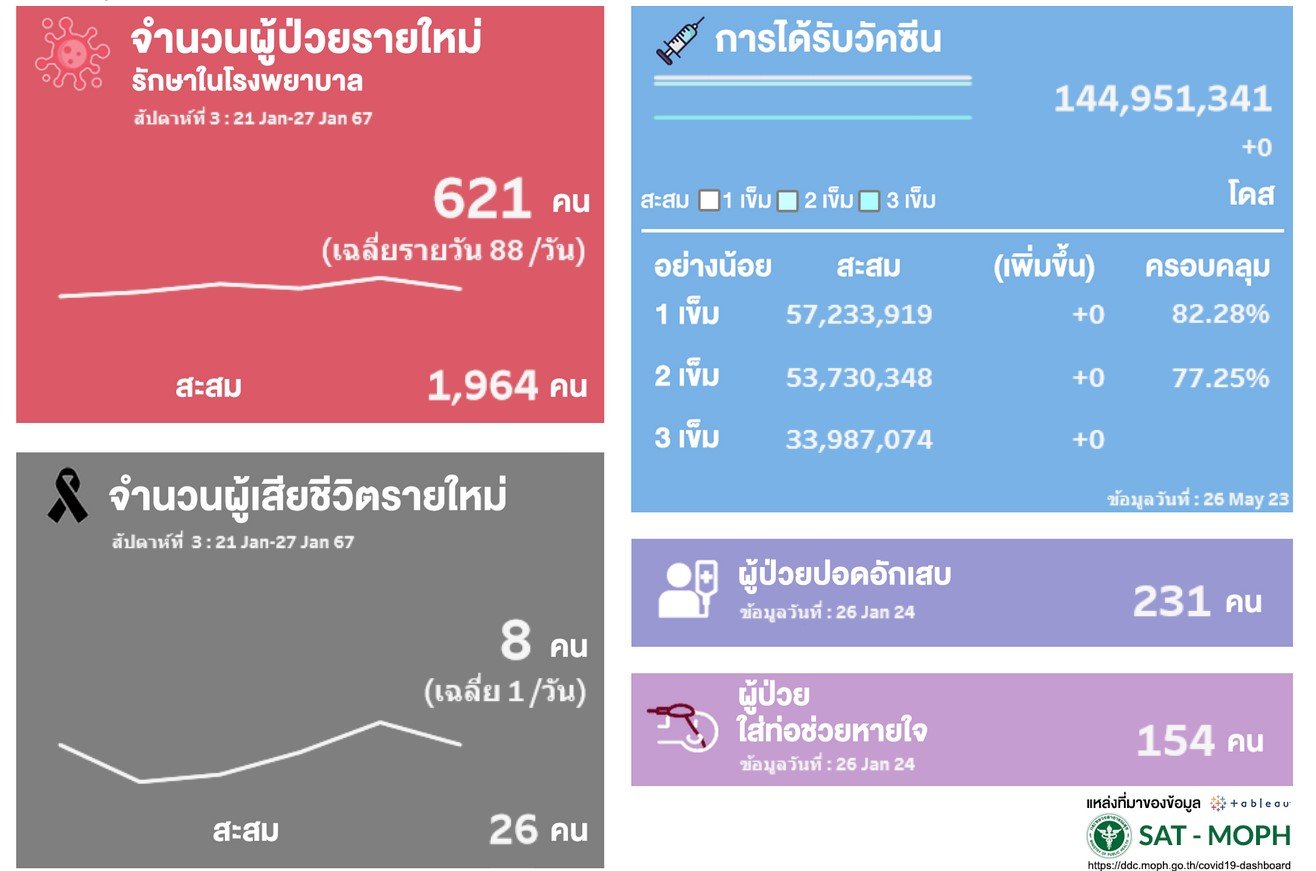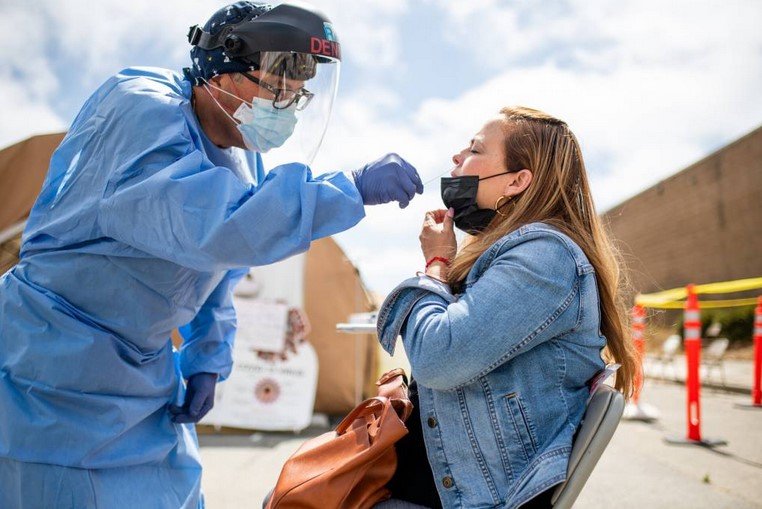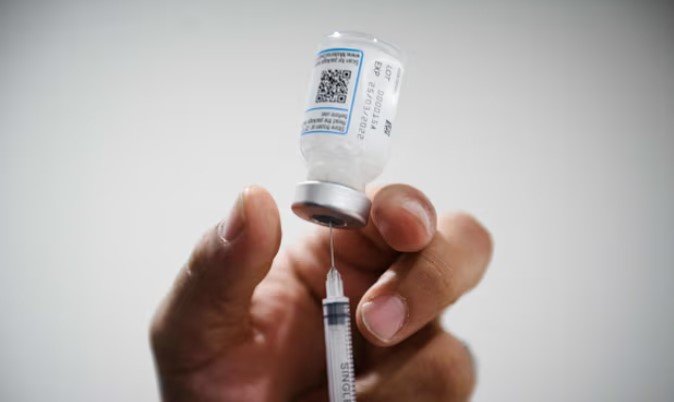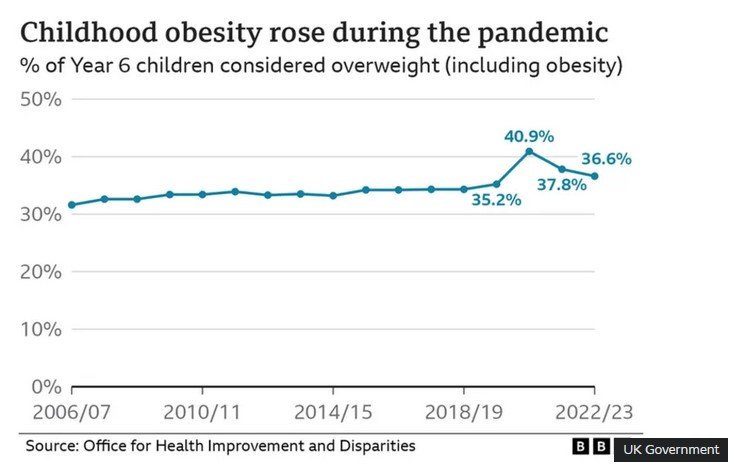-
Posts
37,024 -
Joined
-
Last visited
-
Days Won
6
Content Type
Events
Forums
Downloads
Quizzes
Gallery
Blogs
Everything posted by TallGuyJohninBKK
-
As I previously posted in response to the Belgium advice: 2. the advice above doesn't reflect the recent clarification by the RD that income saved prior to Jan. 1 2024 is not going to be subject to Thai taxation under this new regime, no matter when it's brought into Thailand. "On 20 November 2023, the Revenue Department issued Departmental Instruction no. Paw.162 ("DI Paw. 162"), which provides further guidance that the interpretation under the Departmental Instruction Paw.161/2566 ("DI Paw.161") shall not apply to any foreign-sourced income earned by Thai tax residents before 1 January 2024. By virtue of this DI Paw. 162, Thai tax residents will not be required to include their foreign-sourced income earned before 1 January 2024 in their personal income tax returns, even if such income will be brought into Thailand from 1 January 2024 onwards." https://www.mazars.co.th/Home/Insights/Doing-Business-in-Thailand/Tax/Further-guidance-on-Foreign-Sourced-Income
-
Not necessarily... In the Thai treaty with the U.S., for example, certain kinds of U.S. source income are flatly excluded from Thai taxation in their entirety, including government pensions and Social Security. In those instances, doesn't matter at all what the relative tax rates might be between Thailand and the U.S. for those sources.
-
Maybe we can get an opinion from U.S. Supreme Court Justice Clarence Thomas on the recusal issue for judges, assuming there's any truth to the claim in the Post article: Justice Thomas Ruled on Election Cases. Should His Wife’s Texts Have Stopped Him? The nature of the text messages was enough to require recusal, legal experts said. But the Supreme Court has traditionally left such decisions to the discretion of the justice in question. https://web.archive.org/web/20220326000031/https://www.nytimes.com/2022/03/25/us/supreme-court-clarence-thomas-recusal.html
-
That reporting was at the time of the civil verdict in May 2023. And then the judge in the case later, in August 2023, ruling on a motion by Trump's attorneys, added the following legal context: "Dismissing the counterclaim, a judge in New York, Lewis A Kaplan, said that when Carroll repeated her allegation that Trump raped her, her words were “substantially true”. Kaplan also set out in detail why it may be said that Trump raped Carroll." https://www.theguardian.com/us-news/2023/aug/07/donald-trump-rape-language-e-jean-carroll
-
Contrary to your claim above, I don't see anything in your cited report saying Carroll or her attorneys or her civil case had anything to do with the passage of the law. Hoffman isn't even mentioned by name in the article. Though it's clear that passage of the law was helpful to Carroll's ability to file a new civil case. "Within hours of the law going into effect in late November, Carroll filed a battery and defamation civil suit against Trump. (She filed a separate defamation suit in 2019 that has been postponed.)"
-
While correct in the most general sense, that above is still a pretty gross oversimplification of what's likely to be the case, because: 1. the RD hasn't really clarified yet how this new tax regime is going to work in all its details, and 2. the advice above doesn't reflect the recent clarification by the RD that income saved prior to Jan. 1 2024 is not going to be subject to Thai taxation under this new regime, no matter when it's brought into Thailand, and 3. the above advice fails to recognize that many western countries have double taxation treaties with Thailand that, in many cases, limit or entirely exclude from Thai taxation certain kinds of income/revenues earned by those nationalities, and 4. Holders of the Thai LTR visas are exempt from this entire tax scheme, etc etc. Lots of details that come into play here.
-
Judge in E. Jean Carroll Case: Yes, Donald Trump Is a Rapist "Trump’s team had requested a new trial in the case, arguing that the $5 million in damages he was ordered to pay Carroll was excessive, because he was only charged with sexual abuse. The jury had not found that Trump “raped” Carroll, a talking point Trump’s team often parroted. But Judge Lewis Kaplan called Trump’s semantic argument “entirely unpersuasive.” He clarified that the jury found that the former president did indeed “rape” Carroll based on the common definition of the word." https://newrepublic.com/post/174448/judge-e-jean-carroll-case-yes-donald-trump-rapist Judge says E Jean Carroll allegation Trump raped her is ‘substantially true’ in court dismissal Ex-president claimed that writer defamed him when saying he raped her, but judge said term is commonly ‘used and understood’ in context "Dismissing the counterclaim, a judge in New York, Lewis A Kaplan, said that when Carroll repeated her allegation that Trump raped her, her words were “substantially true”. Kaplan also set out in detail why it may be said that Trump raped Carroll." https://www.theguardian.com/us-news/2023/aug/07/donald-trump-rape-language-e-jean-carroll
-
Ahh, Rasmussen, the king of right-wing leaning, robo-call polling: Pollster: Rasmussen Research has a pro-GOP bias https://thehill.com/hilltv/what-americas-thinking/405965-pollster-rasmussen-research-has-a-pro-gop-bias/ Why the ‘stunning’ poll being pushed by Republicans isn’t that stunning August 19, 2021 "Let’s start with the pollster: Rasmussen Research. CNN doesn’t report results from Rasmussen because they conduct automated polls incorporating interactive voice response (IVR) that don’t meet our polling standards. (IVR just means an automated voice conducts the poll rather than a human being.)" https://edition.cnn.com/2021/08/19/politics/rasmussen-poll-donald-trump-joe-biden-2020/index.html The Rasmussen Difference In addition to being the nation's most prolific pollster, Rasmussen gets a lot of attention, especially from conservative media outlets and pundits, because its polls consistently produce results more favorable to Republican candidates than the overall averages https://www.huffpost.com/entry/the-rasmussen-difference_b_2030330
-
For starters, nothing in the above cited case has proved there was any actual voter machine tampering that occurred in Georgia in the 2020 presidential election -- contrary to Trump and his right wing media's repeated Big Lie claims, for which they have begun paying dearly. And then, if you read the entire article you linked above, you'd see that a significant reason for the POTENTIAL vulnerabilities to the Georgia election system is because of the illegal physical incursion and data copying/stealing that occurred there at a county elections office by Trump's local allies (now the subject of criminal charges), as the article recounts: The Trump angle "As the voting machine case has unfolded, one of the plaintiffs, the Coalition for Good Governance, uncovered efforts by Trump allies in early 2021–right after the hotly contested presidential election–to download the Georgia voting system’s software and other data from rural Coffee County’s elections office. The software and other information remains in the hands of an unknown number of persons, which elevates the risk of hacks to Georgia’s system, plaintiffs’ experts testified this week. ... That incursion was likely “the largest elections systems breach in U.S. history,” said plaintiffs’ witness Kevin Skoglund, the president of Citizens for Better Elections, in court this week. Skoglund, who serves on a cybersecurity advisory group to the U.S. Election Assistance Commission, testified that Georgia’s Dominion elections software was now “spread out around the country” in the hands of “close to a dozen people.” https://atlantaciviccircle.org/2024/01/25/state-doesnt-understand-the-technology-plaintiffs-rest-their-case-in-trial-over-georgias-voting-machines/ As for the paying dearly part: Fox, Dominion reach $787M settlement over election claims April 19, 2023 WILMINGTON, Del. (AP) — Fox News agreed Tuesday to pay Dominion Voting Systems nearly $800 million to avert a trial in the voting machine company’s lawsuit that would have exposed how the network promoted lies about the 2020 presidential election. ... Outside of the $787.5 million promised to Colorado-based Dominion, it was unclear what other consequences Fox would face. Fox acknowledged in a statement “the court’s rulings finding certain claims about Dominion to be false,” but no apology was offered. ... Coupled with other lawsuits in the pipeline, the agreement shows there is a real financial risk for conservative media that traffic in conspiracy theories. https://apnews.com/article/fox-news-dominion-lawsuit-trial-trump-2020-0ac71f75acfacc52ea80b3e747fb0afe
-
The GOAT of NFL QBs, also known as Patrick Mahomes, will be playing for the Chiefs in the Super Bowl! :-) And I say that as a 49ers fan....
-
And that's pretty much in name only, considering that the team relocated out of San Francisco and built a new stadium some years back an hour or so south in the suburb of Santa Clara.
-
Thailand MoPH Weekly COVID report for Jan. 21 - 27, 2024: --621 new COVID hospitalizations, down 97 from the prior week --8 new COVID deaths, down 3 from the prior week --231 COVID patients hospitalized in serious condition, up 22 from the prior week (dark purple) --154 COVID patients hospitalized requiring intubation/ventilation to breathe, up 5 from the prior week (light purple) (cumulative figures are COVID new hospitalizations (1,964) & deaths (26) since the start of the current year) https://ddc.moph.go.th/covid19-dashboard/?dashboard=main
-
I don't see any assessment in the subject study of what the alternate results would have been if the U.K. government had not responded to COVID as it did, in terms of increased illness/hospitalizations and deaths from COVID, not only among children but among everyone. That would be an interesting subject to plumb, if there were legitimate means to make those kinds of comparisons. Earlier lockdown could have saved lives of 30,000, Hancock tells Covid inquiry Tens of thousands of lives could have been saved if the UK had locked down three weeks earlier, Matt Hancock has told the Covid inquiry, as he described the operation of Boris Johnson’s Downing Street as undermined by a “culture of fear”. ... Hancock argued that in retrospect the ideal date for a first lockdown would have been three weeks earlier than the eventual date of 23 March 2020, saying this could have prevented about 90% of the death toll in the first Covid wave, or more than 30,000 lives. https://www.theguardian.com/uk-news/2023/nov/30/hancock-tells-covid-inquiry-of-toxic-culture-in-johnson-government 'In normal circumstances, scientists would wait for the research to be peer-reviewed and published in a scientific journal to read the final word from the authors. But the latest headline-grabbing version, “Did lockdowns work?” has come out as a book – a “revised and extended” version of the May working paper. Its publisher is the neoliberal thinktank, the Institute of Economic Affairs, credited with coming up with many of Liz Truss and Kwasi Kwarteng’s free market policies. The book maintains that lockdowns – as defined by the authors – prevented 3.2% of US and EU deaths in the first wave of the pandemic. But it notes that based on nine specific NPIs, lockdowns in Europe and the US reduced mortality by 10.7% in the spring of 2020 – about 23,000 in Europe and 16,000 in the US." https://www.theguardian.com/society/2023/jun/05/revised-report-on-impact-of-covid-lockdowns-leaves-unanswered-questions In short, I think I'm pointing out, people can recover from childhood obesity. But once you're dead from COVID, there's no coming back.
-
(CNN) -- People who test positive for Covid-19 in California and Oregon are no longer expected to isolate for a set period of time — and those without symptoms don’t have to isolate at all, state policies now say. People with symptoms can return to school or work once their symptoms are improving and they’ve been fever-free for at least 24 hours, according to the state policies. These two states — which have tended to take a more precautious approach to pandemic policies — are the first to break from federal guidance from the US Centers for Disease Control and Prevention, which recommends at least five days of isolation for anyone with Covid-19. Oregon changed its isolation policy in May when the Covid-19 public health emergency lifted, and California followed suit earlier this month. ... The CDC recommends at least five days of isolation because people are likely to be most infectious during that time, and the science around that hasn’t changed. (more) https://www.cnn.com/2024/01/23/health/covid-isolation-guidance-california-oregon-break-from-cdc/index.html
-
Dr Clive Dix says all activities to prepare for next outbreak are ‘literally gone’ and vaccine manufacturers have been driven away "The UK is less prepared for a pandemic than it was before the Covid crisis after driving away jab manufacturers and relying on a narrow range of shots, according to the country’s former vaccine chief. Dr Clive Dix, who chaired the UK’s vaccine taskforce, told MPs on Wednesday there had been “a complete demise” of work to ensure the UK was better equipped with vaccines for the next pandemic, noting that all the activities were “literally gone”. The vaccine taskforce is widely regarded as a rare highlight in Britain’s Covid response. It was led by the venture capitalist Kate Bingham and Dix, who took over as chair in December 2020, when Britain became the first country to roll out Covid jabs." (more) https://www.theguardian.com/society/2024/jan/24/uk-less-prepared-for-pandemic-than-pre-covid-former-vaccine-chief-warns
- 1 reply
-
- 1
-

-
Child obesity in pandemic could have lifelong effects, study says ... "Between 2019-2020 and 2020-2021, the proportion of overweight and obese Year 6 primary school children, aged between 10 and 11, went from 35.2% to 40.9%, with people from deprived areas disproportionately affected. Researchers used BMI data from the government's National Child Measurement Programme, which weighs and measures about one million Year 6 pupils annually in England. The number of overweight and obese pupils of that age decreased the following year, but it was still higher than before the Covid lockdowns. This increase represents a cohort of an additional 56,000 children, researchers from the NIHR Southampton Biomedical Research Centre and University of Southampton say - based on this snapshot. (more) https://www.bbc.com/news/health-68068199
-
Researchers from the University of Southampton showed that obesity rates for British preschoolers in 2020 and 2021 skyrocketed more than 45% compared to 2019 and 2020. The authors said this is the largest single-year increase in overweight and obesity prevalence in recent UK history, and will result in an additional £800 million ($1 billion US) in [lifetime] healthcare costs for now-overweight children who will likely suffer chronic diseases. The study was based on publicly available annual body mass index (BMI) data from 2006 through 2022. Two age-groups were studied, kids ages 4 to 6 years old and 10 to 11. ... While weight for children ages 4 and 5 rebounded to healthy BMIs by 2022, obesity in children ages 10 to 11 persisted and was 4 percentage points higher than expected, representing almost 56,000 additional children who were now clinically overweight. (more) https://www.cidrap.umn.edu/covid-19/childhood-obesity-rates-soared-uk-during-covid-19 "During the first year of the pandemic, school closures dramatically altered the routines of young children. Cancellation of organized sports, disrupted sleep schedules, more screen time, and deterioration of healthy eating habits likely contributed to the largest single-year increase in overweight and obesity prevalence seen in children in decades." https://www.eurekalert.org/news-releases/1031662
-
The widespread adoption of work-from-home (WFH) technology during the COVID-19 pandemic dramatically changed the way Americans live and work, according to a Rutgers University–led study. ... The shift to work from home began before the pandemic. From 2003 to 2019, the rate of only-WFH full workdays increased substantially, almost solely among workers with more than a high school diploma. ... The researchers said that surveys suggest that, postpandemic, workers will roughly quadruple the time they work from home compared with before the pandemic. Some experts estimate that the full days of WFH quadrupled from 2019 to 2022. ... The authors said that these productivity gains would have likely happened eventually but were accelerated by the pandemic. (more) https://www.cidrap.umn.edu/covid-19/data-work-home-tools-boosted-productivity-widened-income-disparities-amid-covid https://www.eurekalert.org/news-releases/1031610
-

Surge in Covid-19 infections and rising death toll in Thailand
TallGuyJohninBKK replied to snoop1130's topic in Thailand News
I don't think we know WHAT Dr. Fauci "admitted" during his two days of closed door testimony before this House committee, because many days later, AFAICT, they still haven't made public the full and actual transcript of Fauci's remarks... But, we do know a couple of things in the meantime: 1. The Democrats on the committee have already accused the Republicans of distorting Fauci's testimony via the Republican-released "summaries", as follows: Democrats accuse GOP of distorting Fauci’s testimony from hours-long meeting 01/09/24 7:15 PM ET Democrats who took part in the two-day interview with former White House chief medical adviser Anthony Fauci said Republicans had distorted what the former government official told lawmakers on his first day. ... Dingell said the GOP statements following the first day were “disinformation.” “They did not reflect the discussion that — I was feeling at the end of the day when I left here, that it had been a respectful discussion and we had had good conversations,” Dingell said. https://thehill.com/homenews/4398661-democrats-accuse-gop-of-distorting-faucis-testimony-from-hours-long-meeting/ and 2. The Republicans' claimed notion that Fauci admitted the CDC's standards of social distancing during the pandemic were some kind of made-up standard flies in the face of the federal government's own documents, including this U.S. GAO report from May 2020 summarizing the known research on "Social Distancing During Pandemics." And the summary of that GAO report includes the following: "A CDC guideline based on historical studies of selected infections says that the area of highest risk is within 3 feet of an infected person. Some studies suggest a buffer of 6 feet may further reduce risk." [bold emphasis added] ... "The scientific basis for these recommendations comes from studies in fields such as fluid mechanics, epidemiology, and microbiology. For example, several studies estimated the velocity and distance traveled by droplets of different sizes expelled by sneezing, coughing, and breathing. These studies showed that sneezing and coughing can propel droplets more than 2 meters, with sneezing possibly propelling them further, and breathing less than 1 meter (fig. 2)." https://www.gao.gov/products/gao-20-545sp So clearly, there was some thinking and consideration and reliance on past research that went into the federal government's social distancing policy during the pandemic, contrary to the claims of these House Republicans. And 3. The individual right-wing Republicans on this particular committee -- including Marjorie Taylor Greene, James Comer, and Ronny Jackson -- have a history of putting out statements that, when reviewed by independent parties, don't exactly hold up to the known and provable facts. https://www.politifact.com/factchecks/list/?speaker=marjorie-taylor-greene https://www.factcheck.org/person/james-comer/ https://www.politifact.com/factchecks/list/?speaker=ronny-jackson https://www.cnn.com/2021/03/02/politics/ronny-jackson-dod-inspector-general-report/index.html So, even though right-wing media didn't wait, let's the rest of us wait and see what the actual Fauci transcripts really say. -

Surge in Covid-19 infections and rising death toll in Thailand
TallGuyJohninBKK replied to snoop1130's topic in Thailand News
Once you have a COVID infection (symptomatic or not), generally, public health folks say you shouldn't be vaccinated again at least for several months thereafter. If I recently had COVID-19, do I need a 2023–2024 vaccine? "If you recently had COVID-19, the CDC recommends waiting about three months before getting this updated vaccine." https://www.hopkinsmedicine.org/health/conditions-and-diseases/coronavirus/covid-19-vaccine-what-you-need-to-know -

Surge in Covid-19 infections and rising death toll in Thailand
TallGuyJohninBKK replied to snoop1130's topic in Thailand News
No. Depending on your age, contracting COVID can still make someone, especially older people and those with health conditions, seriously ill, as well as trigger various potential follow-on health problems including so-called Long COVID. The current vaccines don't provide 100% protection, but they do provide significant protection against serious COVID illness/hospitalization and death, and also reduce the risks of Long COVID. At the same time, the risks of serious adverse reactions to the COVID vaccine have been shown to be very rare. In general, public health authorities vastly advise that getting vaccinated is the best way to protect against COVID, even though it's also true that a person once infected with COVID does tend to be protected against reinfection for some months thereafter. "Getting a COVID-19 vaccine is a safer, more reliable way to build protection than getting sick with COVID-19. COVID-19 vaccination helps protect people by creating an immune response without the potentially severe illness or post-COVID conditions that can be associated with COVID-19 infection." https://www.cdc.gov/coronavirus/2019-ncov/vaccines/vaccine-benefits.html AND Is natural immunity better than a vaccine? "Natural immunity is the antibody protection your body creates against a germ once you’ve been infected with it. Natural immunity to the virus that causes COVID-19 is no better than vaccine-acquired immunity, and it comes with far greater risks. Studies show that natural immunity to the virus weakens over time and does so faster than immunity provided by COVID-19 vaccination." https://www.hopkinsmedicine.org/health/conditions-and-diseases/coronavirus/covid-19-vaccine-what-you-need-to-know -
Still no sign / word of the newer monovalent COVID vaccines approved last fall becoming available in Thailand. Lately, the Thai government, with new COVID hospitalizations at their highest levels in about six months, have been promoting use of the older Pfizer bivalent vaccine which, for example, is no longer authorized for use in the U.S., per the U.S. FDA: "September 11, 2023 As part of today’s actions, the bivalent Moderna and Pfizer-BioNTech COVID-19 vaccines are no longer authorized for use in the United States." https://www.fda.gov/news-events/press-announcements/fda-takes-action-updated-mrna-covid-19-vaccines-better-protect-against-currently-circulating












